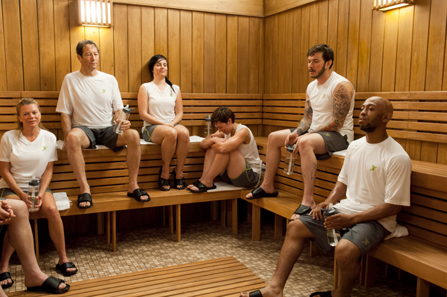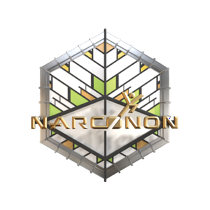A Rehab Does More than Just Get Addicts Off of Drugs

When people think of drug and alcohol rehab centers, they usually think of a residential building where drug addicts and alcoholics will go to and stay for a while, where they can come down off of drugs and alcohol, perhaps while receiving some counseling or group therapy in tandem.
Since most people don’t have first-hand experience with drug rehabs, the above concept mostly comes from a lack of information and data (and perhaps partially from a fleeting depiction of how rehab is portrayed on TV).
But the truth is, there is so much more to it than that. Most drug and alcohol rehab centers do more than just get people off the drugs, and if they don’t they should. A full rehabilitation process for one’s entire life requires addressing additional factors beyond just getting the individual off the drugs. In fact, the metric by which one could measure a treatment center’s value is that center’s ability to address all factors of a person’s life, not just their drug problem.
Let’s take a look at all of the different ways that drug rehab centers should help people remedy their lives as a whole.
Rehabs Remedy the Body Beyond Drug Use
Let’s examine a recovering addict’s very first action in rehab, which will be the process of withdrawal off of drugs. This is the successful effort on the part of the drug treatment center to help the addict come down off of drugs and alcohol and to then help the recovering addict’s body recover from the toxins associated with drug use.

A withdrawal program within a truly professional drug rehab will often use various vitamins, minerals, and supplements to help replenish the individual’s sorely lacking natural supply of such necessary nutrients.
Such a rehab program will also focus on nutritional therapy, proper diet, exercise, massage therapy, physical therapy, time spent out of doors, and a variety of other services that are specific to each center.
Withdrawal is not the end of physical symptoms, however, and new information shows that after this initial phase of withdrawal the body may continue to experience negative effects for months. The Narconon Program provides a unique solution to this in the form of asauna detoxification program.
Rehabs Teach Valuable Skills for Properly Addressing Life
The best rehabs also teach valuable skills for life in general. Some rehabs will offer GED courses. Others will offer training for certain vocations that recovering addicts might want to explore once they get out of rehab. Others offer courses on job preparedness, how to repair relationships, how to choose better friends, how to follow positive and fulfilling endeavors, how to expand career paths, how to get back into school, etc.
Rehabs teach life skills to their participants because rehab centers know that a lack of life skills is often what got recovering addicts into their mess in the first place. It’s not enough simply to physically detox the individual off of drugs and put him or her through some therapy. Rehabs actually need to help the person get better at addressing life in general, all so they won’t fall down similar dark paths again in the future.
Rehabs Offer Education
An article on the website Very Well Mind discusses the education offered at drug rehabs. And this is not the same as the life skills, which are a different type of education entirely. Many drug rehabs will offer education on addiction itself, the different types of drugs, the effects that they have, and why people end up the way that they do as a result of drug use.
The article on Very Well Mind discusses the primary goals of educational programs at drug rehabs, saying that just about all rehabs attempt to:
- Teach participants about the nature of drug and alcohol addiction
- Educate participants on the varying degrees of severity in substance abuse
- Show participants the effects of drug use and alcoholism on the human body
- Explain to people the ongoing consequences of drug use if they continue with drugs and alcohol.
Rehabs do their best to increase their clients’ understanding of drugs and alcohol and the types of dangers and risks that such substances create. Many recovering addicts come into rehab with their own practical knowledge of drugs, but with very little academic knowledge of drugs. When rehabs bring this education home, recovering addicts start to see why they need to stay away from substances in the future.
Drug Rehabs Help Repair Broken Relationships

Many treatment centers offer what is called “family counseling” or something to that effect. Family counseling is essentially an effort made to reconnect the recovering addict with his or her family members—an effort to repair the damage done to family relationships due to years spent using drugs and alcohol.
Rehab centers see repairing family relationships as extremely important. Not only is repairing such relationships simply the right thing to do, but creating a strong and reliable support network for the recovering individual once he or she completes treatment is crucial to supporting their sobriety and their ongoing abstinence post-rehab.
Drug Rehabs Offer Ongoing Care to Foster Stability in Life after Recovery
In an article about “How Effective is Drug Addiction Treatment?” the National Institute on Drug Abuse writes about the importance of ongoing care and service to recovering addicts. Rehab is only the first step, after all, in an individual’s journey to creating a new and better life for themselves.
“Aftercare” is the concept and practice that a drug rehab will continue to help their graduated clients and participants even beyond their term of care within the residential facility. This is yet another service provided by rehabs that most people don’t know about or grant credence to. But aftercare is crucial in preventing relapse, even if it is just as simple as the rehab keeping tabs on their graduated clients and connecting with them regularly.
Drug Rehabs Help People Overcome Their Life Crisis

A drug habit or an alcohol habit is a life crisis. It is more than a mental addiction, more than a chemical dependence, more than a daily, crippling ritual.
A drug habit requires a multi-faceted approach to get rid of it, not just one or two methods delivered quickly over the course of a couple of weeks or a month.
When selecting a rehab program, keep an eye out for rehabs that offer extensive services like the ones mentioned above. These will be the ones that can offer the most help and the most assistance to their clients.
Reviewed by Claire Pinelli: ICAADC, CCS, RAS, MCAP LADC


